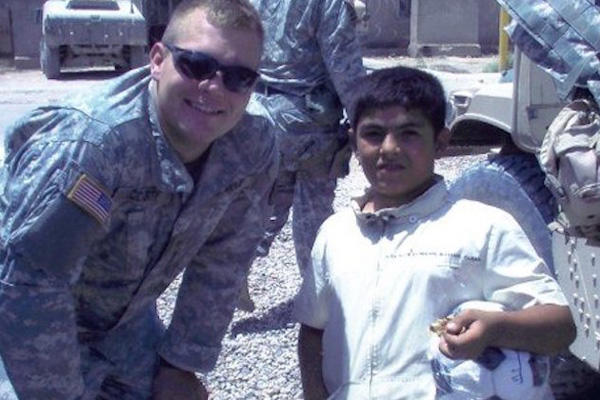This article originally appeared on Task & Purpose, a digital news and culture publication dedicated to military and veterans issues.
A few key decisions made all the difference for Justin McCarty, a former soldier now living in San Francisco. He grabbed opportunities as they were presented, accelerating the successful transition to a rewarding post-military career. McCarty, 30, now works in operations for a fast-growing startup.
There, he applies everything he learned in the military, college and at previous jobs.
Transitioning from the military can be daunting. Many veterans, particularly those who enlisted, have a hard time navigating the complexities of the civilian world. Is my hometown the best place for me, or is it smarter to get a fresh start? Should I go for an education, then get a job? Or take a lower-paying job while going to school?
These are difficult questions to answer, and it can help hear from others who have walked the path and have some wisdom to share.
McCarty did not wait for anyone else to tell him that he needed to excel. "I was able to hit the ground running and get after [school and work] quickly after getting home," he told Task & Purpose. This attitude helped him move up the ranks, then transfer to Cornell University before jumping from finance into tech startups.
McCarty joined the Army in 2005, leaving his hometown of Rockford, a small city in Illinois. He spent 18 months on active duty and another four in the reserves as an infantryman, including a tour in Iraq. According to McCarty, this time overseas gave him perspective on his life. He spent a lot of time thinking about what he wanted to achieve after he got out of the military, he said.
"I remember flying over Ireland on our way home after a 12-month deployment," McCarty recalled. "Something about the rich green of the grass really resonated with me after so much time in the desert. I think back to that moment a lot."
After transitioning to the reserves, McCarty channeled his energy into academics. He attended Parkland College, a community college in Illinois. His sights were set much higher, though.
"I didn't know where the bar was set to get to a top-tier school, but I knew a 4.0 GPA would give me the best possible chance," McCarty said.
Turns out, he was right. McCarty earned a spot in the transfer class at Cornell University.
Switching to finance after graduating in 2010, he took a job with Bank of America Merrill Lynch.
"I knew a stint on Wall Street would be a great place to build my analytic skills," McCarty said. "Plus, I would get a chance to learn how the business world works."
After three successful years at Bank of America, McCarty moved on to Goldman Sachs to take on even more responsibilities. But despite the larger salary, he wasn't happy. Something was missing.
"I had this moment of clarity where I realized that I was repeating the same deal over and over," McCarty recalled. "I could do this for 20 years, then look back on my work and wouldn't see the impact on the world that I was hoping for."
Driven by this need to find a deeper purpose, McCarty took a huge risk and switched to a new career in technology. Through some friends, he contacted people who were hiring at Uber. There, he found a good job in their operations department, where his banking skills could be used.
The decision proved to be a good one. McCarty enjoyed his work more, learned new skills and got married. He also helped start UberMILITARY, which is now responsible for helping more than 25,000 military personnel and veterans make money as Uber drivers.
The benefits are clear to McCarty.
"Moving to tech let me be a part of companies that are changing the world for the better, and this is what I am looking for," he said.
He didn't stay still, either.
McCarty recently moved to another job after several years at Uber. He still works in operations, but now in a more senior position at Sprig, a food delivery startup. (Editor's note: Sprig shut down in 2017.)
"Every day is a different challenge," he said. "You must be able to think differently, and pair that with a 'get shit done' mentality. Fortunately, that is something that most veterans share. The ups and downs of college or the corporate world are nothing once you've sat on your rucksack for hours in the rain, because some Humvee broke down. Nothing fazes you after that."
This article originally appeared at Task & Purpose. Follow Task & Purpose on Twitter.
More articles from Task & Purpose:
- 'Oppenheimer' and the Haunting Fallout of the Manhattan Project
- 'A Nightmare': How Tony Bennett's Experiences in World War II Shaped the Singer
- Air Force Military Working Dog Handlers No Longer Eligible for Special Duty Assignment Pay
Find the Right Veteran Job
Whether you want to polish your resume, find veteran job fairs in your area or connect with employers looking to hire veterans, Military.com can help. Subscribe to Military.com to have job postings, guides and advice, and more delivered directly to your inbox.











